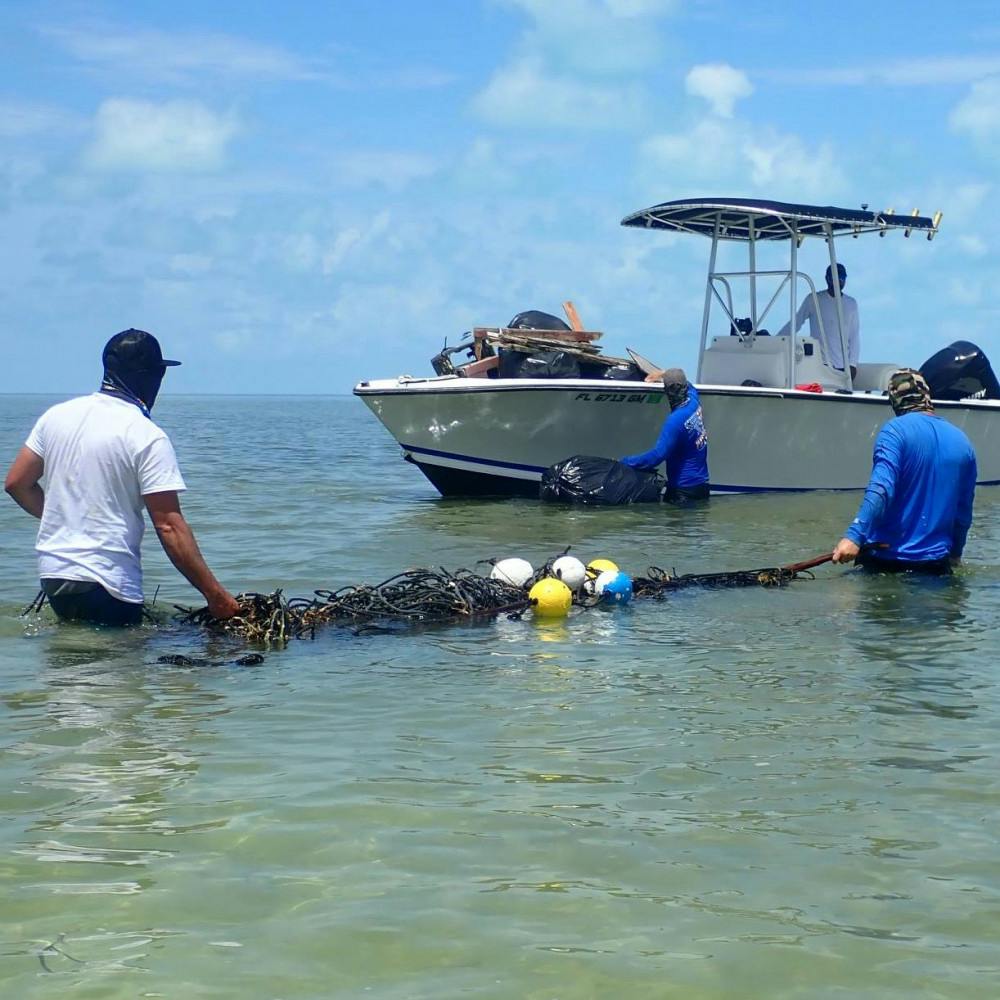In the turquoise waters and sandy beaches of the protected Marquesas Keys, fisherman Daniel Padron saw something disturbing.
Dozens upon dozens of littered fishing traps, strewn across the wildlife refuge.
In late June, a team of UF marine conservation biologists and 30 fishermen from the Florida Keys Fishermen's Association collected and recycled 26 tons of debris and former fishing traps found along the beaches as part of UF's Archie Carr Center for Sea Turtle Research’s project, Reclaim Our Coasts, which works to improve sea turtle habitats. The team used special equipment and boats to transfer the traps to offloading docks.
The five-day project’s $100,000 cost was funded by grants from the Disney Conservation Fund and Sea Turtle Grants program, said Cathi Campbell, the project coordinator for Reclaim Our Coasts.
The Marquesas Keys, remote islands located 20 miles off the coast of Key West, are one of three wildlife refuges federally protected under the Florida Keys National Wildlife Complex. The team found most traps at Woman Key, a nearby key east of Marquesas, Campbell said.
The sheer amount of debris was overwhelming, Padron, a fisherman for almost 18 years, said.
Related: A turtle duo makes waves in new treatment
Traps cost at least $30 each, and it’s difficult for fishermen to collect them once hurricanes shift them away to beaches or shallow waters, said Padron, a board member of the Florida Keys Fishermen's Association.
"The fishermen have a stake in the game,” Padron said. “We don't want to turn a blind eye.”
The group collected than 700 traps over about four miles of turtle nesting beaches and about 25 square miles where turtles forage for food.
Melissa Goldblatt, an education specialist at the Turtle Hospital in Marathon, Florida, said the hospital rescued about 40 turtles this year. A handful were admitted to the hospital because of Irma, but Goldblatt said debris from the hurricane caused more injuries.
Sea turtles swimming in shallow waters risk ingesting debris or entangling themselves in it, which could result in indigestion or the loss of flippers, Goldblatt said. Turtle hatchlings can get caught in the traps and roast in the sun.
"We all need to work together to clean things up – to clean up the beaches, to clean up the waters for sea turtles and for all marine life," Campbell said.
UF marine biologists and 30 local fisherman from the Florida Keys were part of a project that collected 26 tons of debris to improve sea turtle habitats.






